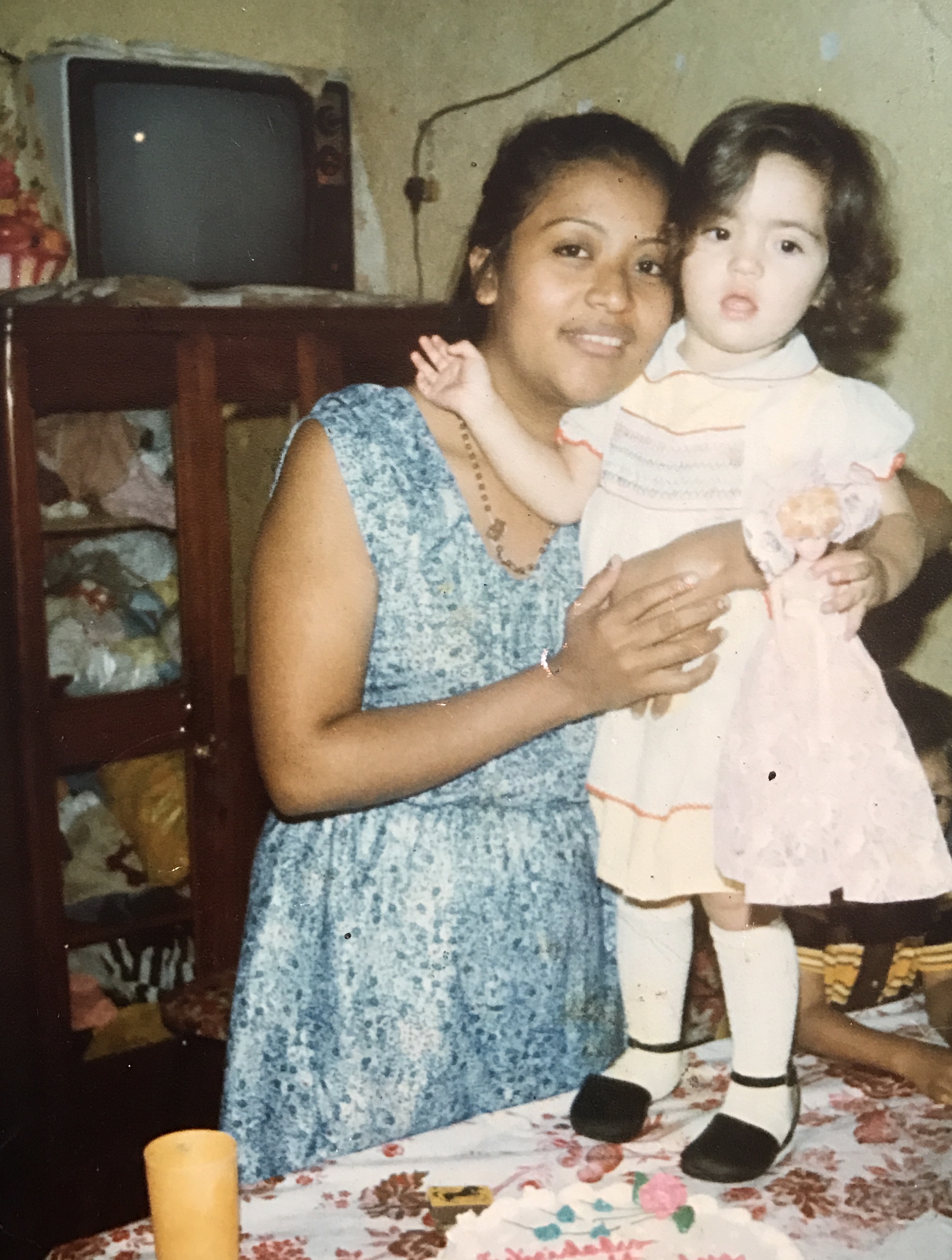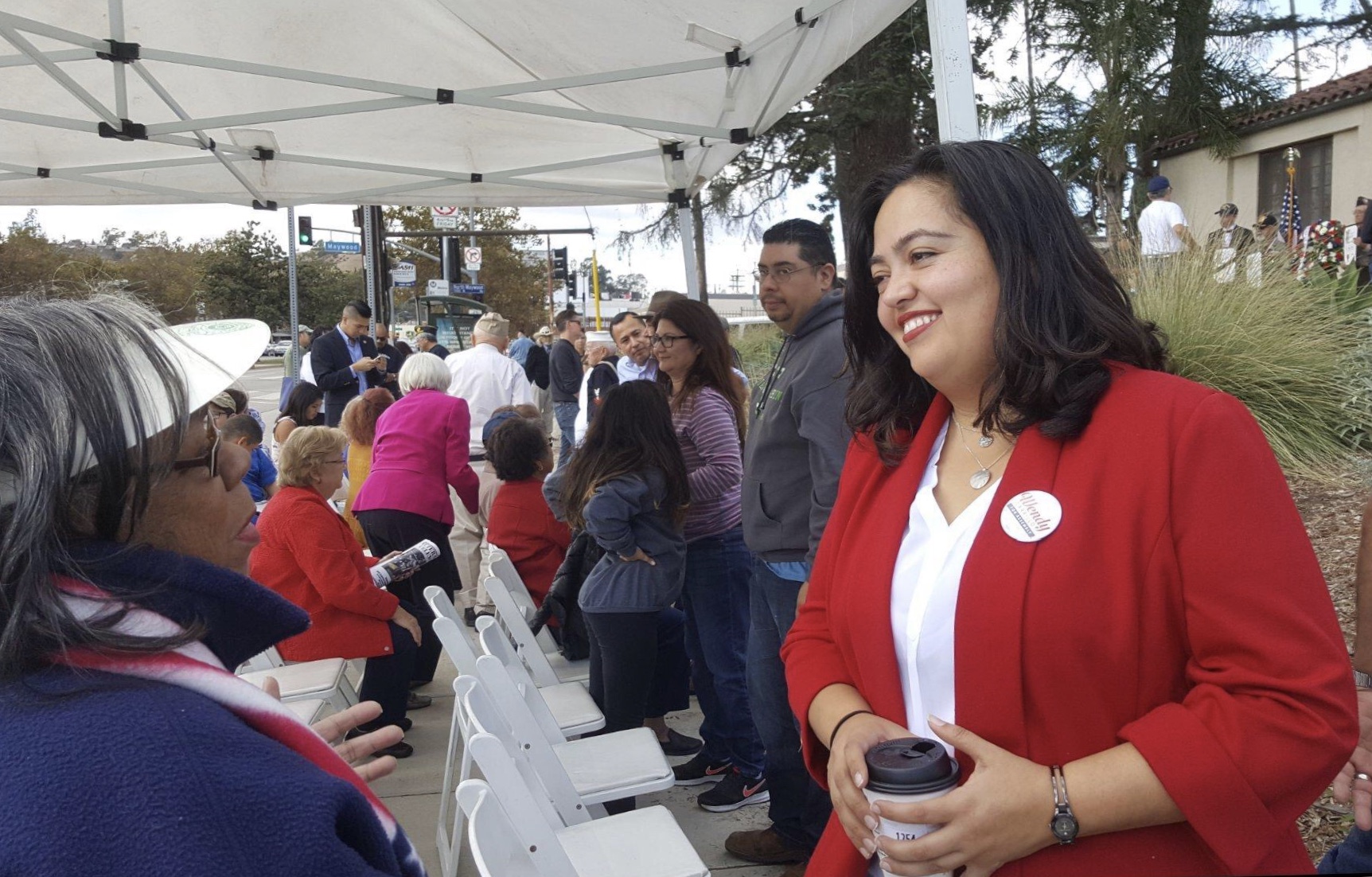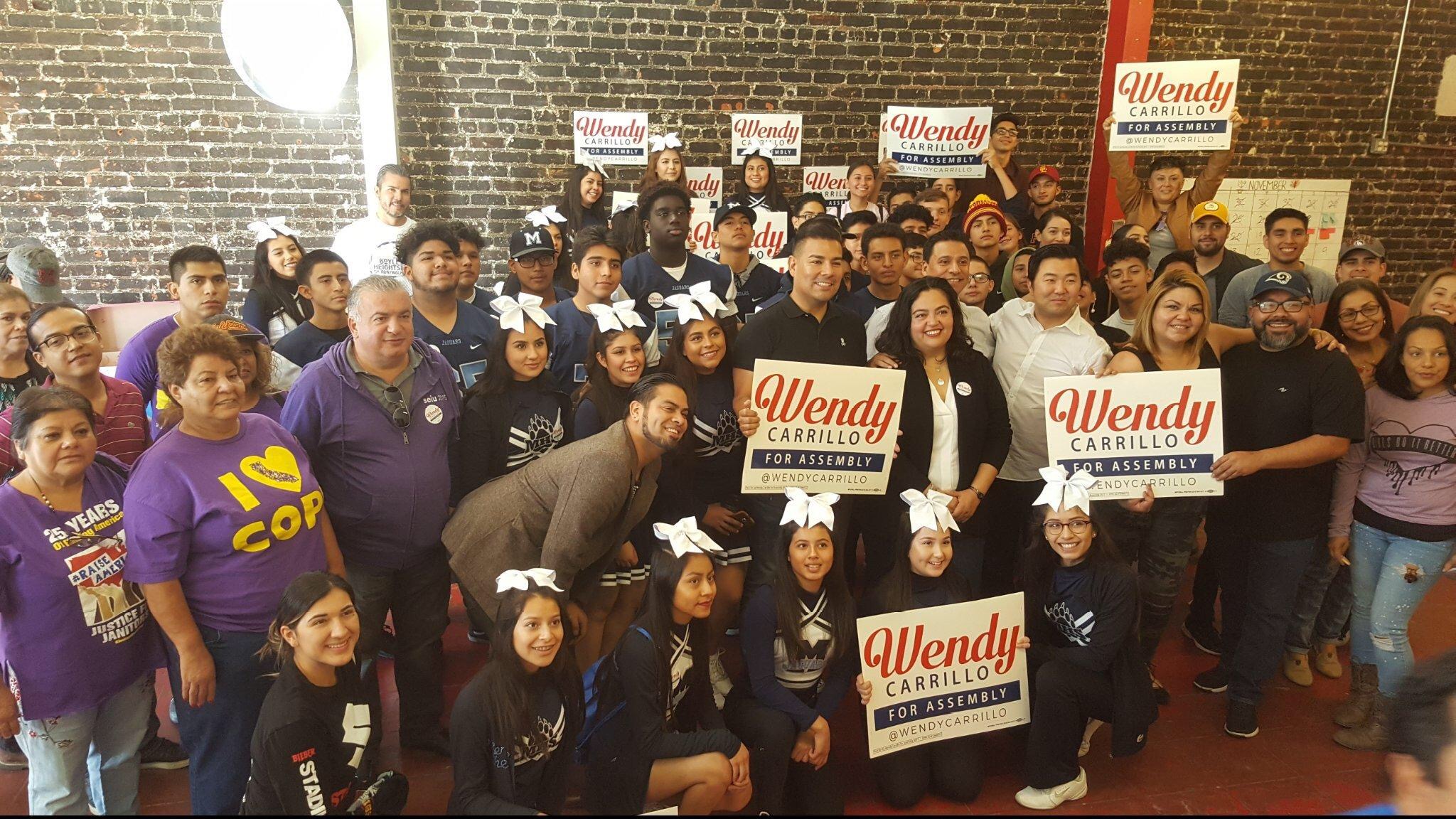For all the blows that 2017 brought us, the year ends with a step forward in the representation of Central Americans in politics. On December 16, Wendy Carrillo became one of the first Salvadorans sworn in to California’s State Assembly.
With her win, Carrillo has made history. She’s one of the few formerly undocumented immigrants to have reached public office. She fled El Salvador’s violent civil war at age 5, crossed the Tijuana border with her grandmother and aunt, and ultimately joined her mom – who left a few years earlier to earn money for their arrival – in California. She grew up in East Los Angeles, and is now representing California’s 51st State Assembly district (AD51) in the state’s capital, Sacramento.

Her experiences resonate with many Latinos. And she hopes her personal story will serve to rally support from fellow lawmakers for the undocumented community, particularly Deferred Action for Childhood Arrival (DACA) and Temporary Protected Status (TPS) recipients, two groups currently facing an uncertain future.
“I want to show what giving opportunities to people can look like.”
“I am a formerly undocumented person, from one of the largest Latino groups in the US and [I’m] fully bilingual. That’s something very rare in politics,” she tells me. “I want to show what giving opportunities to people can look like.”
Carrillo only found out about her undocumented status at age 13 when her family received a residency permit. From then on, she became determined to obtain US citizenship. She saved money and filled out forms without the help of a lawyer. By age 21, she repeated the naturalization oath of allegiance to the US. In the following years, she became a full-fledged journalist and labor activist before delving into politics.

She launched her political career by running in a special election for Congress last year; Jimmy Gomez, who represented AD51, won the race. So when his seat on the state’s assembly became available, Carrillo – who knows these Los Angeles neighborhoods well – decided to run again. But it wasn’t easy. Opponents vilified her because of her past as an undocumented immigrant. As a woman running against eleven men, she also stood out. Yet, she believes that in the Trump era, her womanhood and Latinidad served her well when voters went to the polls on December 5.
But it’s also her view for a future filled with more opportunities that won her voters. With nearly 30 percent of East Los Angelenos living below the federal poverty line, her priorities include healthcare, education, and jobs.
Carrillo is not the first Latino Democrat in Los Angeles, but she’s one of the first Central Americans. “I would be the only Salvadoreña in this job,” she says. 40 percent of California’s population is Latino, yet this demographic only makes up 20 percent of the legislature. Most of them are of Mexican-American heritage. Salvadoran Americans boost one of the largest Latino populations in the United States, but have never had a representative in Congress. In general, the United States has few Central American politicians.
Growing up, she was one of the only Salvadoran kids in East LA, a neighborhood mostly home to Mexican-American communities. For many who grew up in her position, this meant tense relations with Mexican Americans who didn’t understand their culture. And those who sought protection from Mexican-American gangs created the Mara Salvatrucha, now known as an international street gang.
But Carrillo was able to exist between these two communities, putting her in a unique position to understand both sets of constituents. “My first memories there was that I spoke Spanish differently. I had my little Salvi accent, and people thought it was cute,” she remembers with a laugh.

Several currents forged her political identity in her young age. For example, as the father who raised her is Mexican, she espoused Chicano activism. Learning about the African-American civil rights movement added another layer of awareness.
“Salvadorans want to show that we are proud of where we come from, who we are.”
Yet, one of the most transformative moments of her life happened when she visited El Salvador for the first time in 1993. At age 13, she saw the war’s devastation, learned about her family’s story, felt their pain, and witnesses a society still deeply polarized. During this time, a surge of questions raced through her mind: How would the country be if there hadn’t been a war? What would have happened if her family hadn’t moved? What would have been if they hadn’t lost everything? “It was a really politicizing moment for me,” she says.
Another shock waited for her back in the US, though, and consolidated her wish to fight for immigrant rights. In 1994, California Governor Pete Wilson signed California Proposition 187, which stripped rights for undocumented immigrants. Had Carrillo not received her residency permit a year before, she might not have been able to pursue her middle school education.

Decades later, she finds herself leading Central American representation in California politics. Partly, she believes this has happened because she’s shown the community how proud she is of her roots. “Salvadorans want to show that we are proud of where we come from, who we are,” she says. “And [we] want to say that ‘El Salvador is not another place in Mexico.’”
Central American representation in politics won’t increase overnight, but she saw signs of the changing tide during her campaign. Her Salvadoran supporters knocked on doors and brought pupusas and casamiento to the office during the race. “These are foods you would not find on another campaign,” she says. “I think it’s our moment as salvis, we need to recognize our political power and be represented in all levels of governments.”
Yet, no community can change the world alone. “We need to expand and learn from the experiences of the Mexican-American and the Cuban-American communities,” she says. “This way, we’ll grow.”
December 21, 2017 at 9 a.m.: A previous version of this post incorrectly stated that Wendy Carrillo was the first Salvadoran to get elected to California’s State Assembly and that she ran against seven men.







